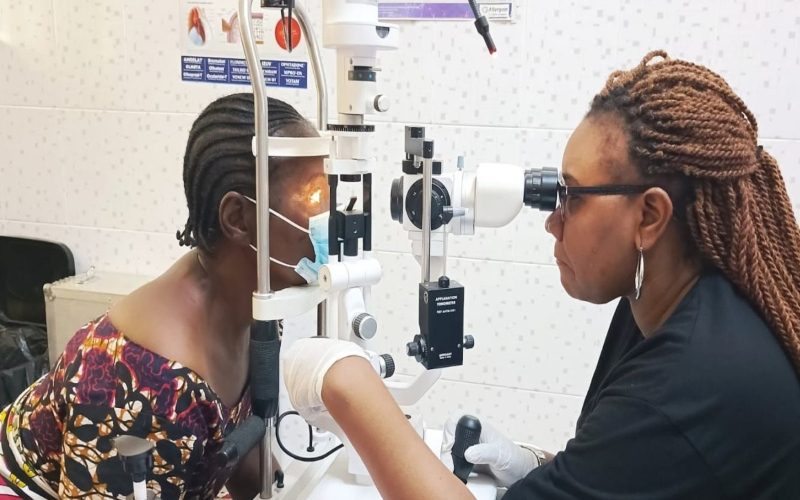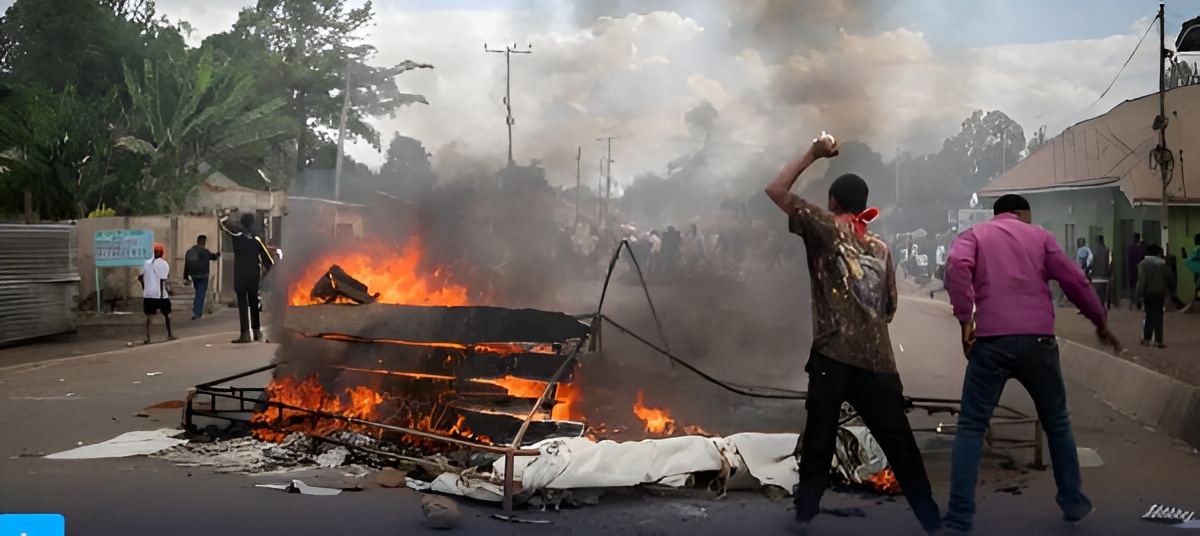Fresh protests put Kenyan police on focus over brutal handling of public dissent
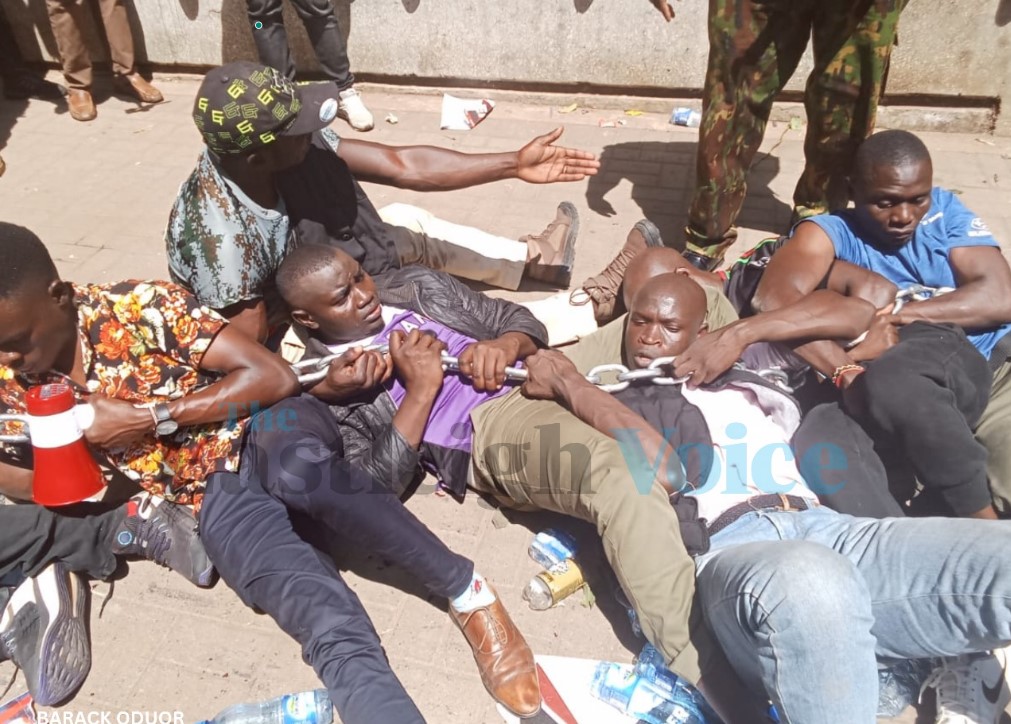
In true reflection of the concerns raised by Kenyans, the country is back to the dark days of arbitrary arrests, enforced disappearances and killings.
As the country braces for what seems to be another round of fresh protests over the continuing abduction of young Kenyans, concerns have emerged on how long it will take for security agencies to manage public protests in a manner that is consistent with the rule of law and basic human rights.
In 2007, when disputed elections led to widespread violence in various parts of the country, the official commission of inquiry into the post-election violence concluded that while there were cases of heroic action by the police, their "response in relation to the management of protests and crowd control was inconsistent in its application, jeopardised the lives of citizens and was in many cases a grossly unjustified use of deadly force".
More To Read
- UN Rights Chief raises alarm over abductions, enforced disappearances in Uganda ahead of elections
- Wajir MCAs demand answers over rising abductions after two men vanish
- Tanzania dispatches envoy to Brussels to avert Sh23.3 billion EU aid freeze
- European Parliament moves to block Sh23.44 billion aid to Tanzania after post-election violence
- Report: Civic space in Kenya shrinking, citizens face restrictions on expression and assembly
- Global HIV response facing worst setback in decades, UNAIDS warns
The National Taskforce on Police Reforms, in its 2009 report, noted that the public had lost confidence in the police due to their misuse by politicians and their use of excessive force in policing public gatherings, including protests.
These conclusions, as well as the Constitution promulgated in 2010, NCRC notes, set in motion a process of policing reforms that were expected to transform the police service and replace the culture of police-public confrontations in protests and public gatherings.
"As part of the transformation of the police service, the 2010 Constitution provides for an operationally independent police service, headed by an Inspector General and guided and restrained in its operations by the principles of human rights, professionalism, non-partisanship and accountability to the public," notes the National Crime Research Centre (NCRC) in its 2019 report titled “Policing Protests in Kenya”.
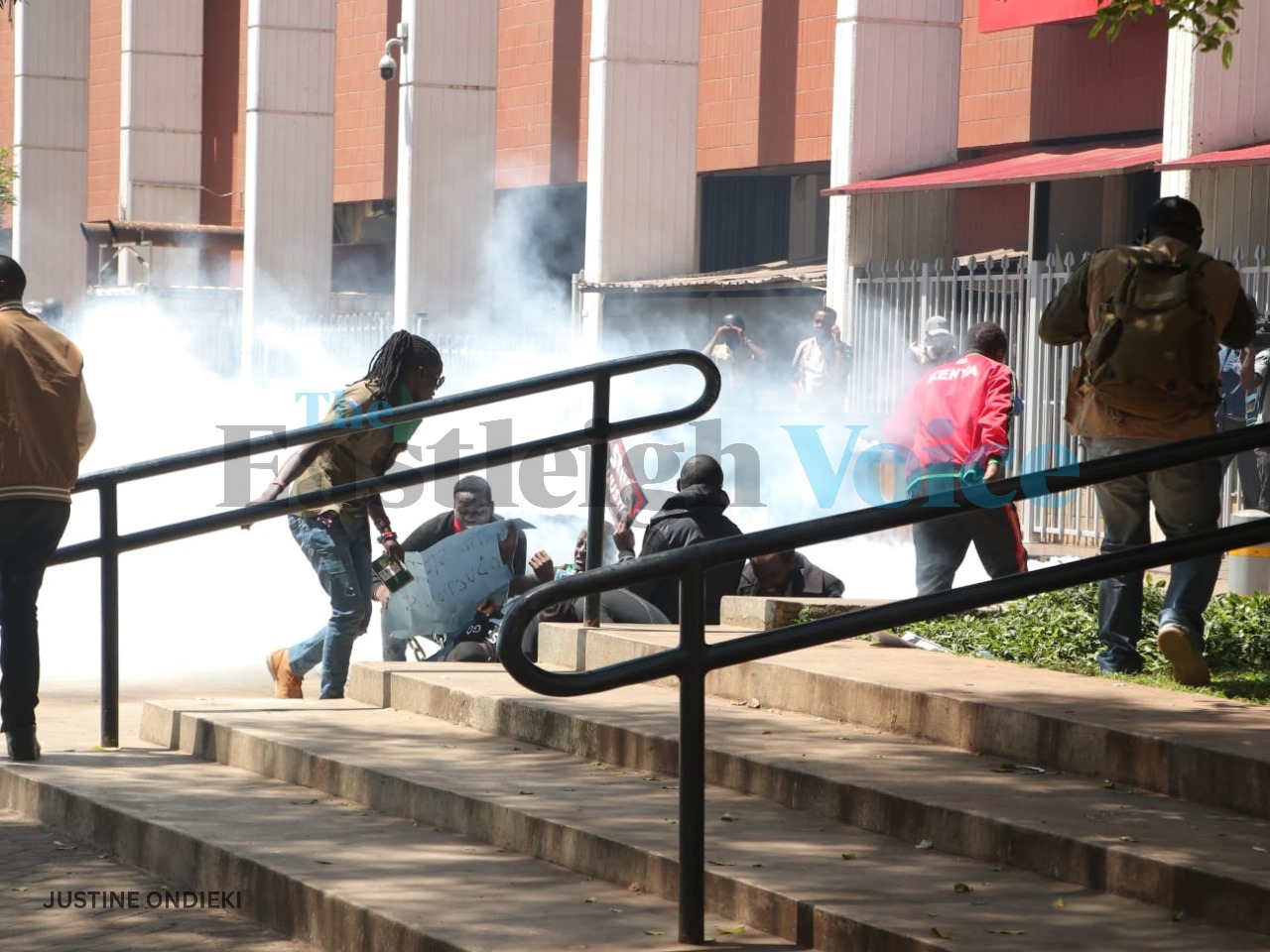 Police lob tear gas at the #EndAbductionKe protesters. (Justine Ondieki)
Police lob tear gas at the #EndAbductionKe protesters. (Justine Ondieki)
Maintaining public order
The report noted that while keeping public order is one of the traditional missions of police services, public gatherings and protests often present scenarios that theoretically and practically test this mission.
"Public protests that seek to challenge governments of the day and to question the legitimacy of those governments present particular challenges given the traditional attitudes and understandings by the police of their role and mission as enforcers and guarantors of the status quo through maintenance of social order," the report says.
Today, however, the continued use of masked and non-uniformed officers in protests has raised questions as it goes against the National Police Service standing orders that require that all officers be properly identifiable to avert the risk of civilians impersonating them.
"Unless an activity, such as undercover operation, precludes prior identification, any police officer on or off-duty and not in full police uniform shall identify themselves as police officers prior to taking any enforcement or corrective action including gathering any police information; while on-duty, plain-clothes officers shall display their badges on their outer garment when involved in a police group action where their identity may be questioned by either citizens or other police officers," the revised orders state.
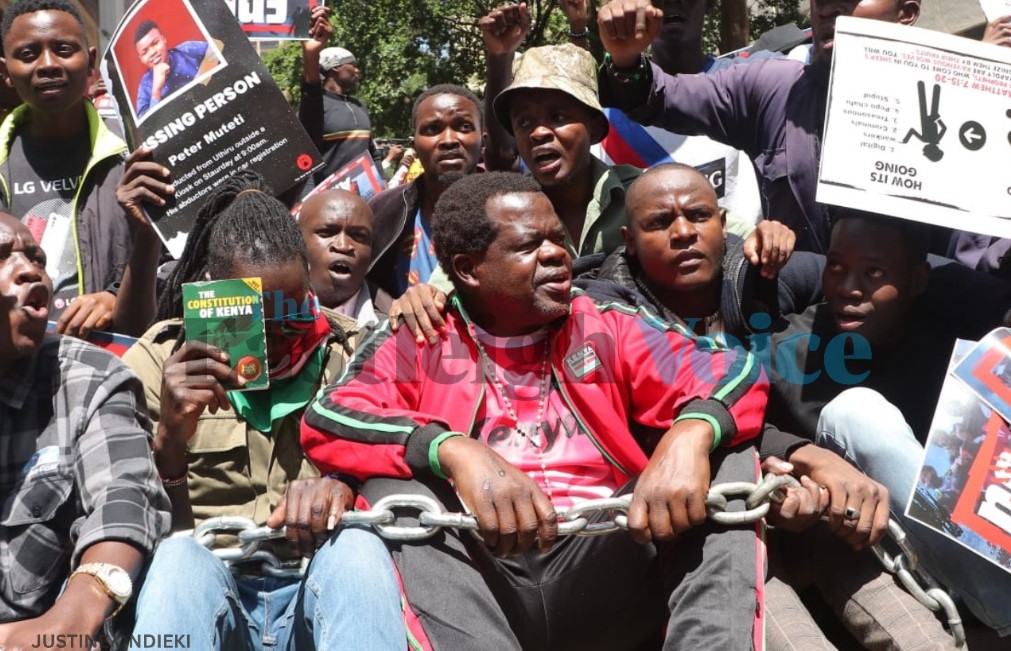 Busia Senator Okiya Omtatah and other protesters during a sit-in on Aga Khan Walk in Nairobi on December 30, 2034. (Photo: Justine Ondieki)
Busia Senator Okiya Omtatah and other protesters during a sit-in on Aga Khan Walk in Nairobi on December 30, 2034. (Photo: Justine Ondieki)
Rising abductions
At the same time, the increased cases of abductions of government critics have rekindled some of the sentiments shared by Kenyans on the Justice Maraga-led taskforce on police and prison reforms in the country when most wondered whether the report would have any impact on police conduct.
"One of the most remarkable observations from the field visits was the public scepticism about whether the task force's report and recommendations will ever be implemented or make any difference. This is a well-founded anxiety based on the depressing reality that the issues surfaced through these public dialogues have, for decades, been flagged but remained largely unaddressed for just as long," former Chief Justice David Maraga notes in the report.
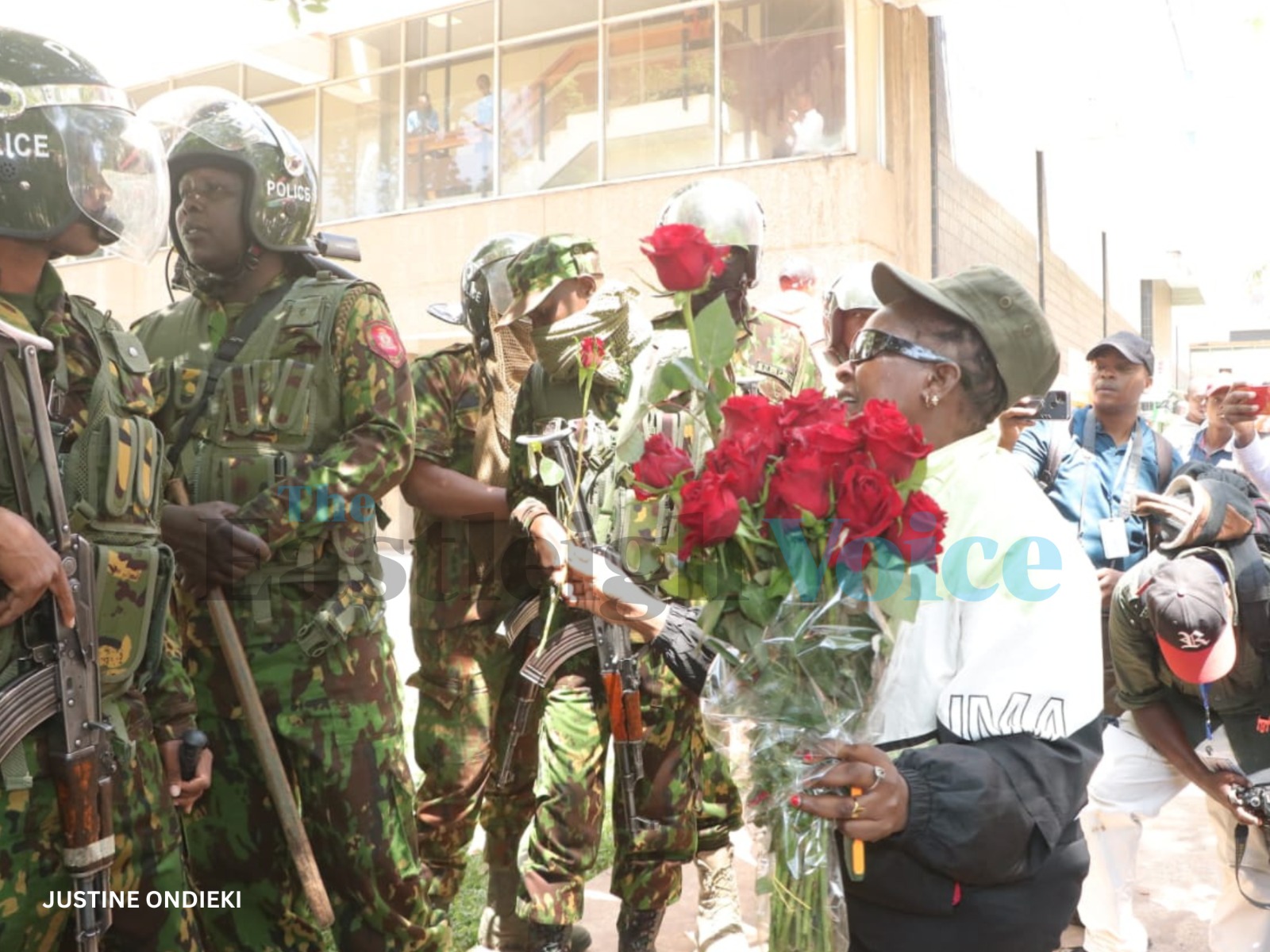 A protester presents flowers to anti-riot police officers out to quell protests on December 30, 2024. (Justine Ondieki)
A protester presents flowers to anti-riot police officers out to quell protests on December 30, 2024. (Justine Ondieki)
Enforced disappearances
In true reflection of the concerns raised by Kenyans, the country is back to the dark days of arbitrary arrests, enforced disappearances and killings.
As Kenyans continue to protest in reaction to issues affecting them, the manner of response continues to raise not just legal, moral and ethical questions against the government but also widens the rift between security officials and ordinary Kenyans, with each side now getting overly weary of the other.
Unable to contain his reaction to the issue, on Sunday, Maraga publicly complained about the killings, maiming and abduction of young Kenyans and questioned the moral sense of the politicians behind the actions.
"If we are truly a people sworn to the sanctity of life and the dignity of every citizen, then we must stand bold in the truth of our constitution. I condemn the killing, torture and the abductions and call for the immediate release of the youth still held unlawfully. Our politics must never again be this heartless and uncaring," he said ahead of Monday's planned demonstrations against widespread abductions.
The latest demonstrations are a call to end the abductions, which have continued despite assurances by President Ruto that they would end.
"We are peaceful!" the protesters said as they kicked off the march on Aga Khan Walk in the city centre, pushing the government to release everyone who has been abducted.
Kenyans will be watching and recording how security agencies respond to the protests.
Top Stories Today


